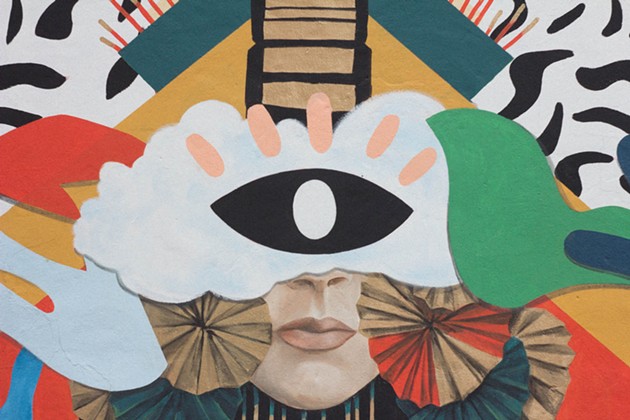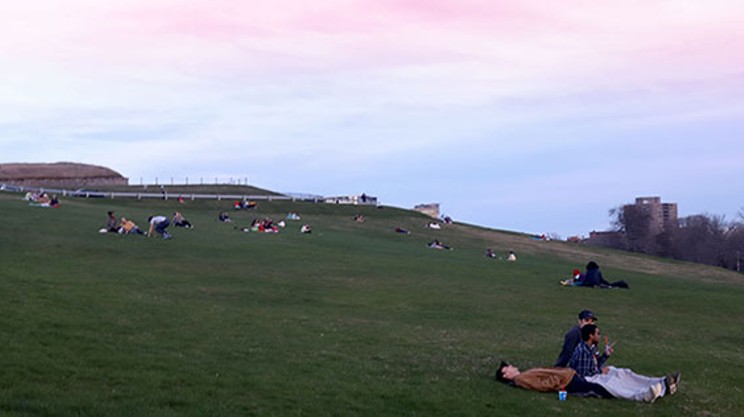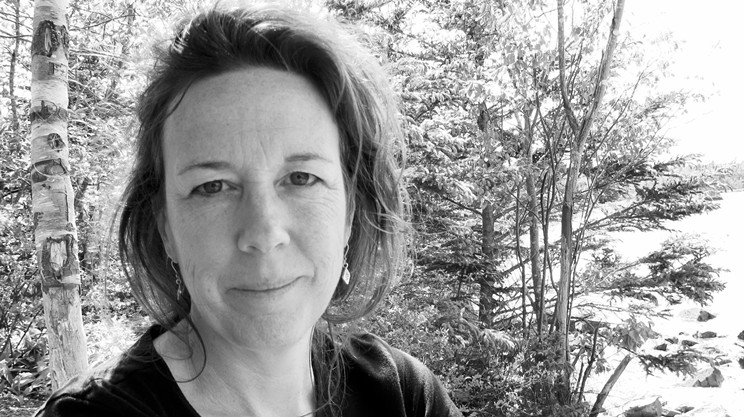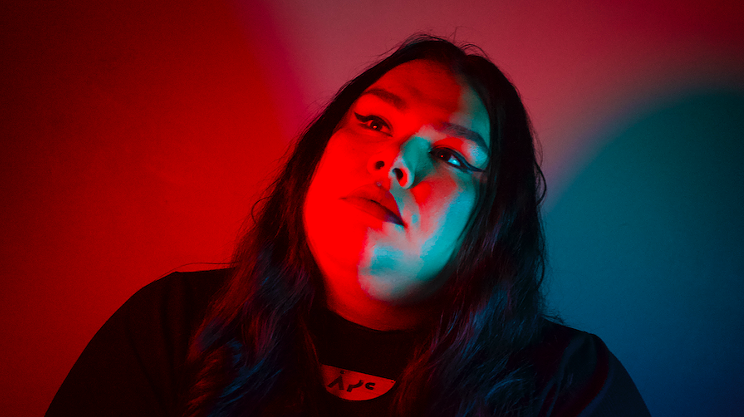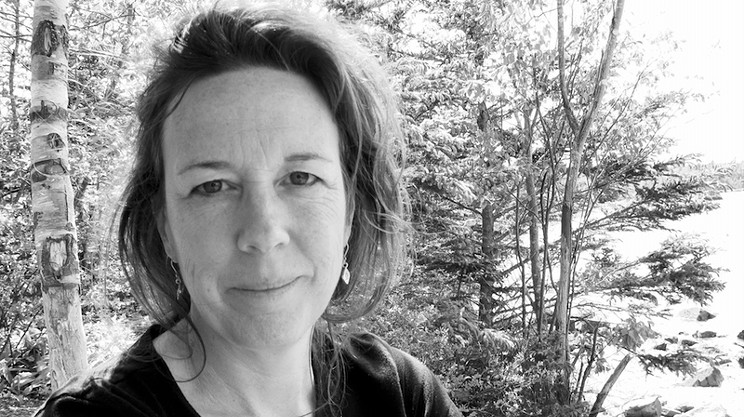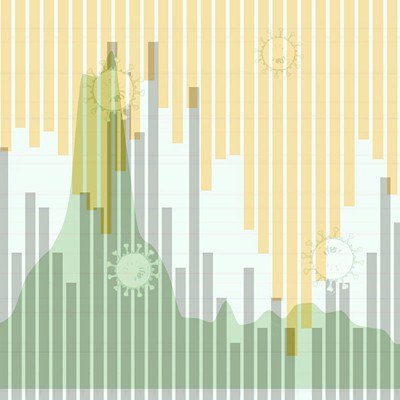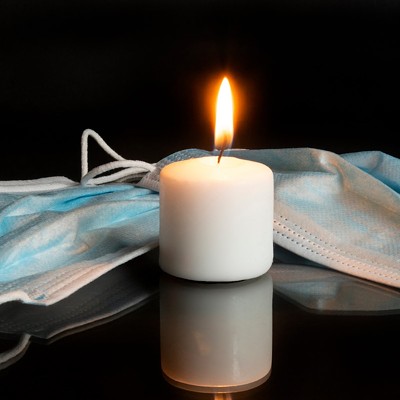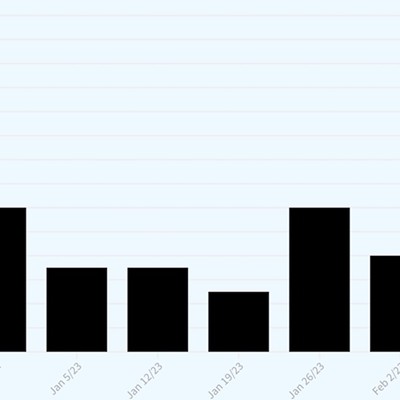March 18 coronavirus
Two of the six potters in my class had been besieged by the same idea, smoothing small ears onto a palm-sized planet. The perfect model weeks before coronavirus, months even. Art, eh? and how it moves in this newfangled circuitry.I bend to a small rubber turkey on the sidewalk with my phone. The photo doesn’t capture its surprise at being dropped, its soft belly rising its gasp. This is what I was after. The way a doily on a television set beyond the nudity was a gospel according to Diane Arbus. A study of the implication of care it designs. God, I love her work. The present tense presenting itself in a frame.
I bulldozed a dream on waking from it last night. Drove around, pushing, until it was compact and easy to carry. Which I did, to a clearing. Circled it with big-enough stones then coaxed it aflame. I held its smoke in my lungs until I could feel the poison retracting. This is a lucid first aid I may tell my therapist about. My body, in the meantime, is an ashtray. Or a camera. It just can’t fucking decide. That last sentence, the border that needs the most vegetation. To green it up, ffs, to wild it against the virus.
I text things I would say to my therapist to friends. Emoji, emoji, emoji. My life in fruit and hearts.
My phone is such a small portal for all the life teeming through it. The tube the octopus in the Toronto Aquarium swims through, changing from Bowie’s pink to Bowie’s blue. The little busload of words: an ultrasound to see the baby or I’m drawing nice cats on everyone’s take-out bags—I’m considering myself a community service or the results will take 24 hours. I’m stealing the words holy, holy, holy from the scriptures for being this close to the brink.
March 19 coronavirus
In the dream, I am told to get off the bus. I don’t so it is yelled at me. Immediately I am in water, deep beneath me I see a girl I am told to help. This is what you’re here for, I’m told. I hadn’t taken enough breath to hold so flounder. Then don’t breathe, I am told. Swim.
The water is the syrup of a Sunday afternoon. I swim with a knife between my teeth. I swim with a knife in my teeth. I swim with a knife between my teeth / to the furnace the girl is wired to.
When I wake, it’s to the virus. I wake to the virus and have brought the girl with me. And the knife. This, my therapist would say, is the work my body needs. Now let’s talk about the furnace, he would say.
Every couple I saw yesterday were holding hands. Every couple. I told my husband when I got home. Then last night, a post on Facebook by a well-known astrologer about sea otters holding hands. So they don’t drift apart when they sleep. During this time of isolation, she says, know someone is holding your hand.From the window I watch a person talk to their dog. They have paused, the dog perked to its person’s voice, the person smiling. I know this because I have fetched my glasses so I don’t miss a thing between them.
tweet this
Let’s talk about circuitry. Let’s talk about yesterday’s instagram #jennyholzer post: In a dream you saw a way to survive—wait, I thought reading it, am I the girl I’m saving?—and you were full of joy, says soothing Jenny Holzer who is the balm.
From the window, at the end of the daylight, I watch a person talk to their dog. They have paused, the dog perked to its person’s voice, the person smiling. I know this because I have fetched my glasses so I don’t miss a thing between them. The person is kind and has legions of friends. They are easy in their body and are gesturing as if their words have the kind of energy that need to move through their limbs, exiting at the hands. And face. Long story short, the dog preens and commences walking first, its person following. In the dog’s mouth is the rubber turkey I tried photographing yesterday. You remember, the one that was gasping à la Arbus? The rubber turkey, by now, must be transformed by this carrying.
March 20 coronavirus
Someone in my dream last night lined up three shovels, horizontally, one per front stair to keep the virus away. Stacks of wood lined each wall inside. Good, dry wood. Cords and cords. The person, out of their kitchen holding a spoon aloft: how did you get in here? Didn’t you see the shovels?
March 24 coronavirus
My mother bought my daughter Dalai Lama orange wool, an exact match to what she needed. She lays a strand from her project close to this new yarn and there is not one spice of difference. Nanny gets me, she has said in the past. That’s it. A shard from a much longer, convoluted dream but what I bring back to the surface. Not the wool but my mother. Will I see her again? This sadness is just the foothills, I know. And the range beyond, those three sisters gritting their peaks to the sun.
Meanwhile, in the media, Dan Patrick, the Texas Lieutenant Governor, announces that grandparents aren’t afraid to die for the economy. A new currency, currently.
This grieving I feel has taken the shape of snow falling outside now in the unlikeliest clumps. Cherry blossoms of snow. Caesuras. My mother is infamous for saying the thing, not necessarily the worst but in the clumps of the worst, the pre-worst. In this way, I’ve grown up anticipatorily. As in: any minute. Like the virus: about to pounce, has pounced, will pounce. Omniscient and media-ed.How, I’m wondering, can we stay here? How can we acclimatize to this tenderness so that is the new way we greet each other when we finally can?
tweet this
It dawns on me. The planet is my big body, my home is also my body, and my body, well it’s off wandering somewhere pretending it can’t hear its own heart ringing the way I clench when someone says my name unexpectedly. And this is me resisting my body’s resistance. Breaking it down. Text me to warm me up to all of this leaning in. One baby step at a time. Send an emoji or a purple heart. For the bravery which is all of ours. Sure, I lather up and scrub but I end by holding one hand in the other like a fallen bird. Tender and for the length of an entire song which feels proper, somehow.
March 25 coronavirus
I read George Oppen’s: true seeing is an act of love. And then out loud: true seeing is an act of love. I touch my face after I hear the words till the silence. A finger to my mouth then both hands to my temple before I even know my hands are rising. This, I understand, is part of hearing and speaking, lingering at the trace of poem and impact for the sustenance of its sensation. I touch my face after I say something hard, vulnerable. My hands, the loyal protectors at the entrance of my voice. Admitting how much grief I feel and how afraid I am and both hands create a gate across my mouth then move to hold my head, all the thinking, the hearing it’s been doing. My hands are mother and child. They are clouds and applause. They bow and know when to offer their palms. They go so far before returning to check my ears: am I hearing everyone? My mouth for the pause it needs to consider. They press into my eyes and offer a morsel of night when the day is too insistent. They were my first net and have been holding my head aloft like a moon so that I can look at the sky longer. To not touch my face isn’t a proper grief but a rehearsal for the unspeakable. It begins with: how can I not touch you? The person ploughing my grocery cart across the lot in a berating rain. How can I not extend my hand to receive the tulips that have been considered with such care? At home, I wash my hands long enough to remember to hold them. The strength they hold each other with—the strength I hold myself with—is perhaps the true act reviving.
March 26 coronavirus
Have you seen that image of how trees converse in company without their overstories touching? I have wanted to taste the space between them for the collaborative flavour they’re colluding since seeing it. I’ve been thinking how this is a version of convergent evolution we’re participating in. Two metres apart. What can we name the flavour of that space? It alludes to love and caring. Connection. Potential. And how real this space has become. The electric fence I feel if someone enters it by coming too close. Dude, I said, with barbs, after a runner came close to grazing my arm yesterday. What is this new too close and the stalagmites of fear that splice into me? How dark is the threat and how real? What’s that meme going around? Today the devil whispered in my ear, “You’re not strong enough to withstand the storm.” And I whispered, “six feet back, motherfucker.” It’s a little like that, with whatever shape your devil takes. This space fortifies an updated version of meditating. And introduces fear as ventriloquist.
In poems, that silence, the space between words and lines and stanzas, is where poetry blazes or lingers. Past the brink where words, that can only go so far before being struck dumb, are stymied.
tweet this
In poems, that silence, the space between words and lines and stanzas, is where poetry blazes or lingers. Past the brink where words, that can only go so far before being struck dumb, are stymied. This border or edge converses with what poet Edward Hirsch names as the immense intimacy and the intimate immensity of the unsayable. That part of our being that thrums, that can feel the galactic verve but is bewildered when asked to name it. All kinds of words come then, vying to be chosen: love, Bergson’s élan vital, sacred. The words that crowd like trees don’t touch the divine or the fire or the , but edge around it like a fire that warms them. Lorca’s Duende comes close, for me, but there’s still something missing that relates to zinnia or dahlia or soul blossom or the omnidirectional growing of a seed, reaching into the earth and into the sky and not stopping there but thriving into becoming/being itself. There’s something to that thriving into itself that I’m struck by now that a lot of what distracts me has taken a step back or has closed or has been put on hold. I recently read an article by a person who has endured solitary confinement for 27 years. A lot of the system keeps us from realizing our own power, Keith LeMar says of what confinement makes clear to him. You have to learn how to deal with yourself. The root word of education is “to educe,” to bring forth that which is already there, Keith reminds us. Hopefully young people being forced to stay home outside of the mainstream curriculum are able to get a glimpse of themselves and start pulling on that thread. This space, then, clears the way for some pulling on the thread of ourselves. An opportunity to refresh how we are manifesting.
I’m also struck by the synchronicity of our thinking right now. How, yesterday morning, I picked up Sartre’s book on imagination because, well, it asked me to, and later read about how we are in the chrysalis state, basted in the imaginal cells that maintain the memory of our prior selves. Then later reading how imaginal hygiene is inner art of self-curating the imagination, using it to cultivate opportunity tin a way that writer M.T. Xen proposed in an article written in 2008. Then back to Oppen reading his Of Being Numerous. The consideration of being released from a consumer’s imperative to this isolation that is clarity in the sense of silence. Or this new two metre space, for the poetry to green itself into the common.
March 27 coronavirus
David Bowie and I were listening to records in a dream. He was pulling one from under a bed or couch, and straightened with a hash pipe in his mouth. He didn’t put the vinyl on a record player but on a contraption he was building like a sculpture of sounds. Just one toke, he said, then handed me the pipe. And I’m the asshole, watching TikTok, videotaping the dream in the dream. Bowie shrugged and carried on. It is part of the virus, he thinks, this recording everything. Make something, he didn’t say, but exhaled and even his breath was spiced with the particular Bowie butane that got me through a lot of hard years. Sure I smoked from his pipe but I also held his shrug until I could see anemones of light with my eyes closed. I may still be stoned which is OK with me. Permanent, I hope. For how it’s fucking with the DNA of my fear. Putting glitter on it, feathering it up. All the feelings, all the hours. So deep in my room. I never leave my room.
March 28 from March 20, 2019
My body is refusing public. It smokes spring like a dime bag, brazen and interior. Its little awkward cough, just the tip of it.
How, I’m wondering, can we stay here? How can we acclimatize to this tenderness so that is the new way we greet each other when we finally can?
tweet this
March 29 coronavirus
How, I’m wondering, can we stay here? How can we acclimatize to this tenderness so that is the new way we greet each other when we finally can?
tweet thisI Facetimed some family yesterday and then felt a sadness deep in my body. How crucial contact is, I’m realizing. The touch, the vicinity so laughter is still carbonated when it reaches my ear. The syrup of sweet space that a smile or easy camaraderie flavours. I miss all my people. I miss the people who aren’t my people. I cried in a way I haven’t in a long time. It was a childhood afternoon cry, a deep afternoon of alone where dust motes carve a slow curve through the room and the stillness is an epoch that feels ancient. I’m still raw and moving with a tenderness for my body. This morning, washing the dishes, I looked out the window and there was a woman reading the poem on my chalkboard out front. Usually I leave the room/window so readers have some space but I stayed this morning and watched her face transform, open, as she read. This is a new kind of crying. Seeing vulnerability manifest and in that moment we were sibling, family, in the poem, in the moment, in the movement of hearts opening. How, I’m wondering, can we stay here? How can we acclimatize to this tenderness so that is the new way we greet each other when we finally can?
March 31 coronavirus
I stand at the point or moment where Allan Street becomes Oak because I can feel this transformation happening to me, going from name to tree, to body, and I want to learn
how being this body means understanding that it can leave a trail of virus. And how so many people have become bodies. My body is so much body that it takes me hours to care for it, to comfort it. It needs chocolate then a bowl of cereal then to lie down with a soft blanket.
And then some Bach played at the right temperature. And then some Bowie and Aretha. Then some scratchy voiced poet talking about community and then the queer theorist who is willing to talk of her mother and her pain on YouTube. Then jelly beans. Then it needs a window. Then to cradle its phone and watch TikTok for the reunions of grown children with their mothers
and fathers, with their sisters because my body needs to cry in a way that it feels afraid of, because it may not be able to stop. Oh my body. Oh my body can feel other bodies who don’t have other bodies and then my body needs to be held. OK. And then it needs to be let go. Then it’s all get out of the way and let me dance. Then all: leave-me-alone tough and I’m learning
to give it its dignity for that toughness because it is still practicing being tender. I mean I’m still learning to be tender and can feel my lungs, those two old caves the bears sleep in, that are waking now to the shrill voice of a ranger recording the waking and the numbers and the deaths and all the bears want is quiet and trees because they are new to being awake. Because I am new
to being awake and am letting go of my name to concentrate, to nourish my body and its bears, waking. And what will be left after my name but a tree? And who will carry my name but its branches, its arms holding me in its arms? The trees of so many names are feeling their leaves now, every minute, every second, I can feel the forest deepening.
April 2 coronavirus
I’m noting how barbed the edge of my six feet space is. How it volts as soon as someone comes too close. I’m trying to soothe my edges, understand the veering closer or the disregard of space as a vacation in progress from the pandemic. I’m also rehearsing ways to say: howdy, please don’t come any closer, without being shrill or bitchy. I stood in a store and listened to someone talk about their fears. This felt like a kindness and was easy. My arms full of vegetables. Replete with greens, the person all: this is just the beginning; this is just the first one. If I knew their name, I would say it out loud right now to send the vapour of my heart towards them so that it may soothe their ruffled safety.Is it just me or is Dolly Parton everywhere right now? In the background of photos (in a bookshop window, amidst the books this morning), or in the forefront reading to us? Or being referenced? Being sung? Has she always been everywhere? I remember doing a residency in Calgary and it was the first time I was away from home after a singularly turbulent time. I remember the vulnerability I felt, the rawness. My room was upstairs in an arts community centre and on waking the first morning, hearing a mixed ability cast rehearse a play they had written. I came down the stairs and they were loudly blown away by my sudden appearance as if I had appeared by magic. Shazaam. They were a lava of delight demanding to know where I had come from. How had I made myself just appear? I was here all along, I told them, and heard it for myself because I was angled open, wanting to be nourished at the time. I have been here all along. One of the things I did for myself that trip, besides sitting beside the river for long stretches and acquiescing to its current, letting it move through me so I felt joined somehow to its moving and besides having open heart conversations with other writers, was to choose to go to a Dolly Parton concert rather than to a poetry reading. I remember the walk to the stadium, standing in line, walking up long sets of stairs because the only seats left were the furthest section and arriving to my seat, to the welcome of the people in my row and in front and behind me. It was as if we were embarking on a journey together and that we were all more than game for the next couple of hours. I’ve never trusted a singer more than I trusted Dolly that night. I think I stood most of the time. I sang along and cheered. We all did. And I cried. I sobbed because she walked me up to the front door of myself and knocked on it for me. And what is anything good but a kind of homecoming? An invitation to attend or engage with your own vitality, your running sap so that you can sweeten? And how important is finding that flow in times of chaos, of fear? I’m thinking if Dolly is one of our candles, it’s no wonder she’s burning so brightly right now. Find out who you are, she says, and do it on purpose. Is this what we’re all maybe doing?

